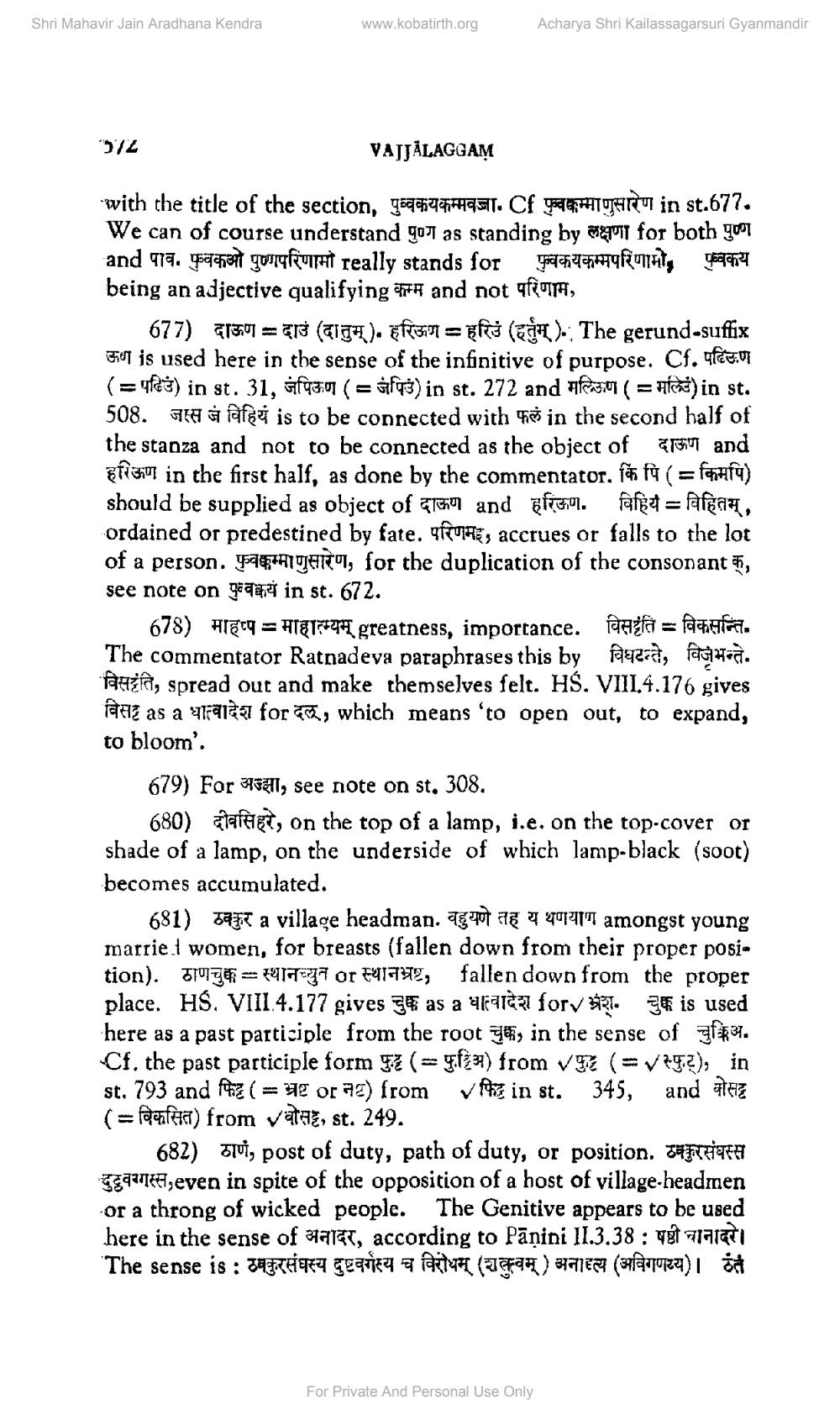________________
Shri Mahavir Jain Aradhana Kendra
www.kobatirth.org
Acharya Shri Kailassagarsuri Gyanmandir
SIZ
VAJJÁLAGGAM
with the title of the section, पुवकयकम्मवजा. Cf फुवकम्माणुसारेण in st.677. We can of course understand 90% as standing by Smut for both your and 919. 95 24 gonfut really stands for the Roht, geceniny being an adjective qualifying कम्म and not परिणाम,
677) 7750 = arg (TTT). Eff531 = f (FIT). The gerund-suffix STOT is used here in the sense of the infinitive of purpose. Cf. te: 0 (=y23) in st. 31, 1930 ( = sfus) in st. 272 and fast ( = Hice) in st. 508. जास जं विहियं is to be connected with फलं in the second half of the stanza and not to be connected as the object of u and हरिऊण in the first half, as done by the commentator. किं पि ( = किमपि) should be supplied as object of 91557 and eft M. Parce = Aigar, ordained or predestined by fate. frunt, accrues or falls to the lot of a person. 97*** TARTT, for the duplication of the consonant , see note on yani in st. 672.
678) HECT = ATET?*greatness, importance. fazla = fatherlanta The commentator Ratnadeva paraphrases this by facente falgues. Fahist, spread out and make themselves felt. HŚ. VIII.4.176 gives faz as a 4179147 for , which means 'to open out, to expand, to bloom'.
679) For 353, see note on st. 308.
680) Aarhet, on the top of a lamp, i.e. on the top-cover or shade of a lamp, on the underside of which lamp-black (soot) becomes accumulated.
681) ठक्कुर a village headman. वहुयणे तह य थणयाण amongst young marrie. I women, for breasts (fallen down from their proper position). ठाणचुक = स्थानच्युन or स्थानभ्रष्ट, fallen down from the proper place. HS. VIII.4.177 gives as a 1191. forv i k is used here as a past participle from the root yh, in the sense of 334. Cf, the past participle form (= 128) from 9E (= V2.?), in st. 793 and 2 ( = 9€ or 72) from vi in st. 345, and the (= विकसित) from Vबोसट्ट, st. 249.
682) Goi, post of duty, path of duty, or position. JAHRHAFA 38971147, even in spite of the opposition of a host of village headmen or a throng of wicked people. The Genitive appears to be used here in the sense of 1917, according to Pāṇini 11.3.38 : gt11a1ati The sense is : 395741989 geanien faktet (1994) 321€ (splanurza)
For Private And Personal Use Only




